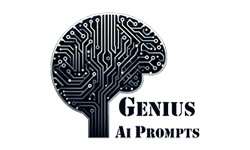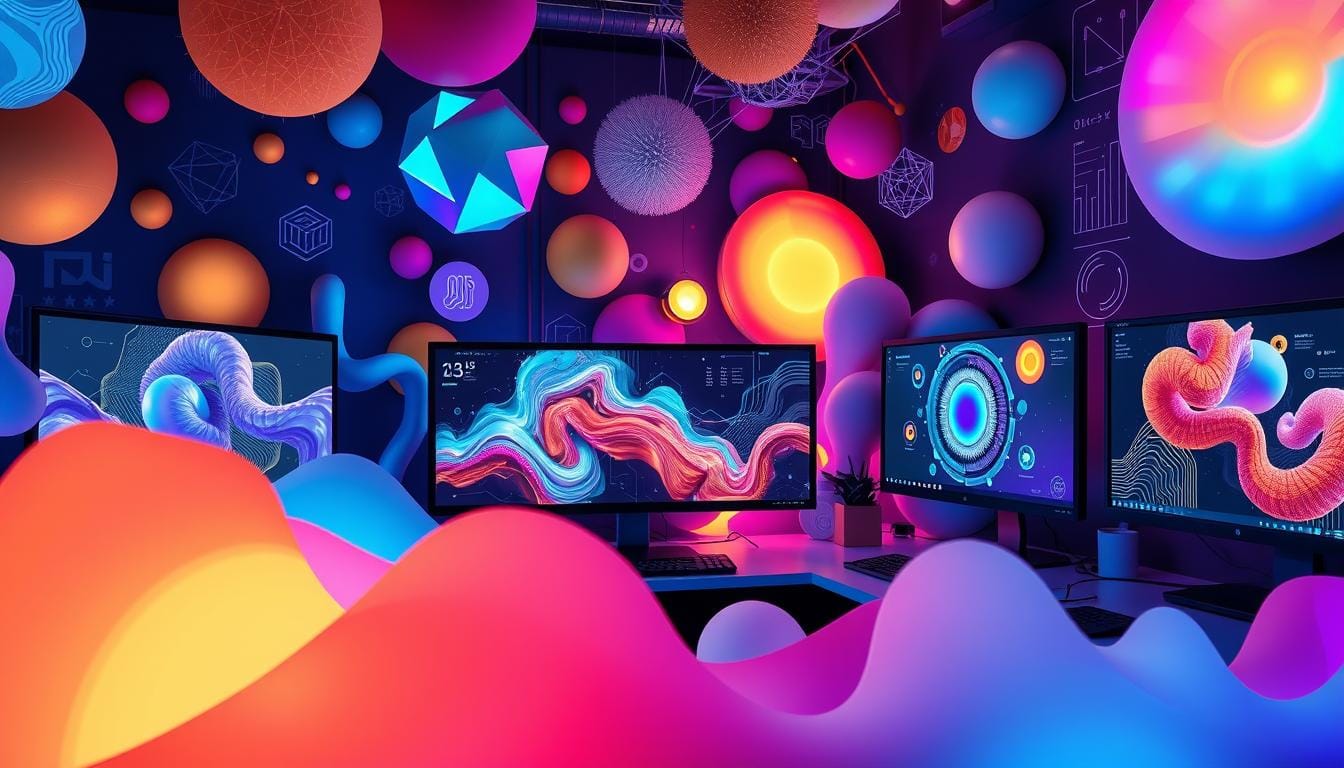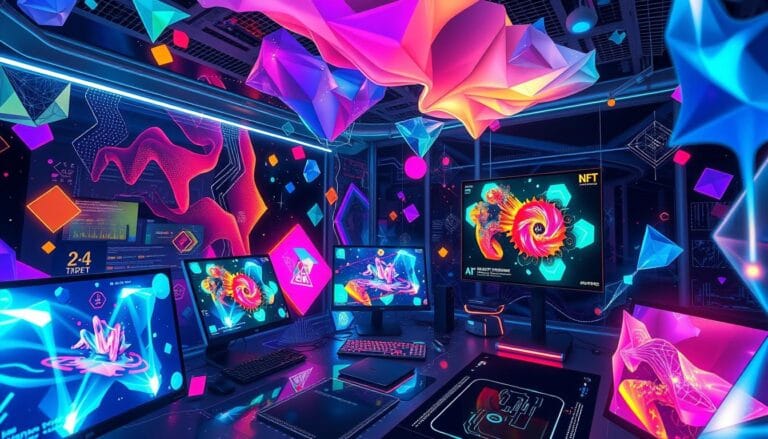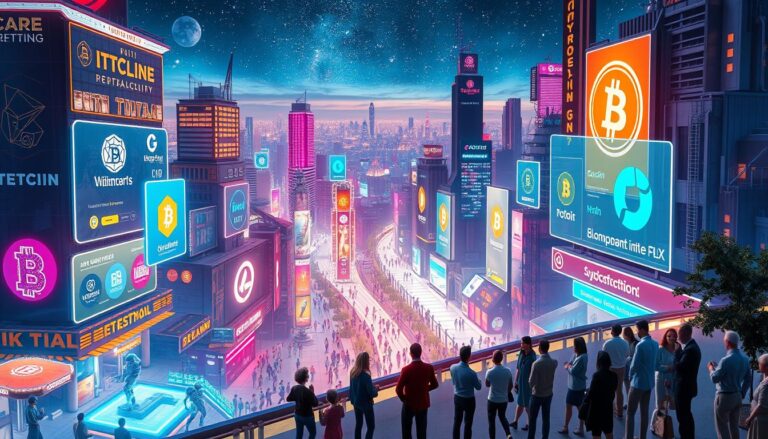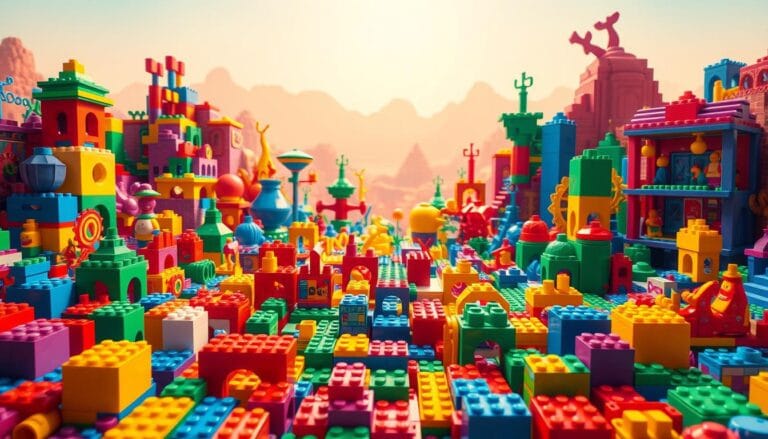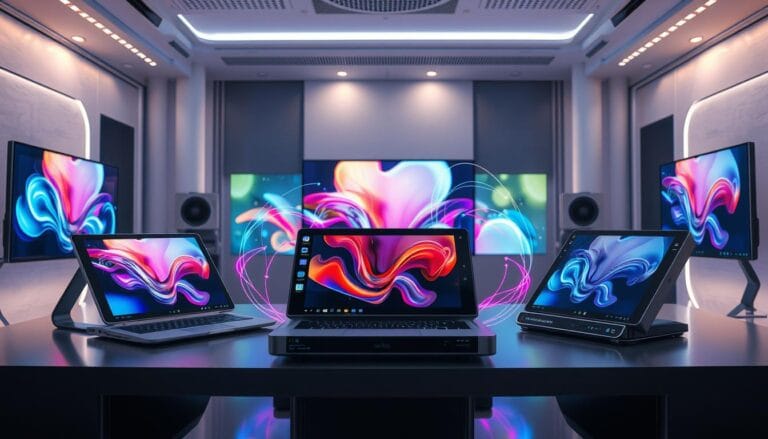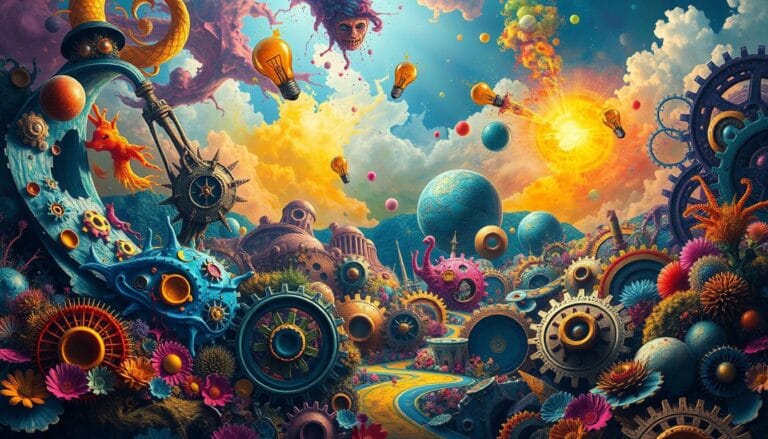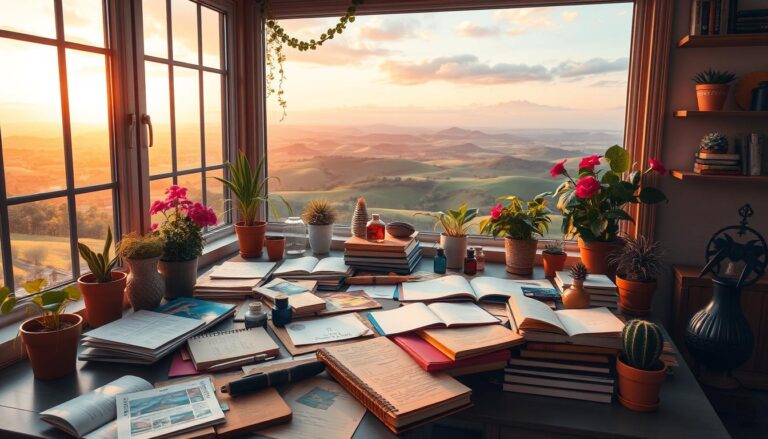AI Visuals: 7 Powerful Techniques to Create Visual Art
Every creative journey starts with a spark of imagination. In the world of digital art, AI visual techniques have changed how artists create. Now, you can turn a simple idea into stunning visual art with just a few clicks.
Thank you for reading this post, don't forget to subscribe!AI visuals have opened up new opportunities for digital artists, designers, and creatives. Tools like DALL-E 3 and Leonardo AI are changing what’s possible in visual art. They let you create stunning images that were once impossible.
Whether you’re a professional artist or just curious, AI art tools offer powerful ways to bring your ideas to life. They can transform existing images or create entirely new ones. These technologies are changing the digital art world.
Table of Contents
Key Takeaways
- AI visual art tools offer unprecedented creative possibilities
- Neural networks can transform and generate unique artworks
- Advanced machine learning enables dynamic art creation
- Artists can explore new creative techniques with AI tools
- Digital art is becoming more accessible and innovative
Understanding AI Visual Art Creation
The world of ai-generated art has changed a lot in recent years. It has changed how creative people and fans make art. AI tools have made it easier for everyone to create art, breaking down old barriers.
The growth of ai art tools is amazing. In 2018, Christie’s auction house sold an AI artwork, Edmond de Belamy, for $432,500. This was way more than its expected price of $7,000-$10,000.
Definition and Evolution of AI Art
AI-enhanced art is where tech meets creativity. Important moments include:
- Creating advanced neural networks
- Developing text-to-image platforms
- Coming up with style transfer algorithms
Current State of AI Visual Technologies
Now, you can find powerful ai visuals on sites like Midjourney, DALL-E, and Stable Diffusion. These tools let users make detailed, real-looking images with just a text prompt. This has changed the digital art world.
“AI art is not about replacing human creativity, but expanding the boundaries of artistic expression.”
Impact on Digital Art Industry
The rise of ai-generated art has changed how artists and designers work. They use AI tools to:
- Speed up their creative work
- Try out new visual ideas
- Make art more accessible to everyone
As AI keeps getting better, it will open up even more creative possibilities. It will challenge how we think about art and technology.
Essential Tools for AI Visual Creation
Exploring ai art tools has changed the game for digital artists and content creators. Your journey into ai visual methods starts with understanding the most powerful platforms available today.
When diving into ai digital art, several standout tools can transform your creative process:
- DALL-E 3 (OpenAI’s top image generator)
- Leonardo AI (versatile image creation platform)
- Canva AI Image Generator
- Midjourney (Discord-based image creation)
Your ai art strategies should consider each tool’s unique capabilities. For instance, DALL-E 3 has been named CNET’s Editor’s Choice for AI image generation. It offers exceptional prompt understanding and image quality.
“The right AI tool can unlock unprecedented creative potential” – AI Art Innovators
Pricing and accessibility vary across platforms:
| Platform | Monthly Cost | Key Features |
|---|---|---|
| DALL-E 3 | $20/month | High-quality image generation |
| Leonardo AI | Free/Freemium | Quick response, good prompt adherence |
| Midjourney | Paid (Discord) | Advanced image creation |
Pro ai art tips recommend experimenting with multiple tools to find your perfect match. Remember that building precise image prompts is key for stunning AI-powered visuals.
Mastering AI Art Generation with DALL-E 3
DALL-E 3 is a big step forward in AI art, giving creators amazing tools. It lets artists and designers make incredible images with great detail and creativity.
To make the most of DALL-E 3, you need to learn some key techniques. This AI platform has special features for artists who want to try new things.
Prompt Engineering Basics
Creating good prompts is key for AI art success. Your prompts should be:
- Specific and detailed
- Clear in artistic direction
- Descriptive of desired visual elements
Advanced Customization Features
DALL-E 3 has cool ways to customize your art. You can:
- Change the image style
- Alter the color palette
- Try out different artistic views
Image Editing Capabilities
The platform has great editing tools for fine-tuning your images. With ChatGPT’s free plan, you get two images a day. The paid plan, at $20 a month, lets you make as many as you want.
“DALL-E 3 transforms complex ideas into visual masterpieces with unprecedented accuracy” – AI Art Experts
Use these advanced AI techniques to take your art to new heights. You’ll discover amazing digital art possibilities.
Exploring AI Visuals Through Leonardo AI
Leonardo AI is a game-changer in the world of digital art. It changes how artists and designers make visual content. It opens up new ways to be creative.
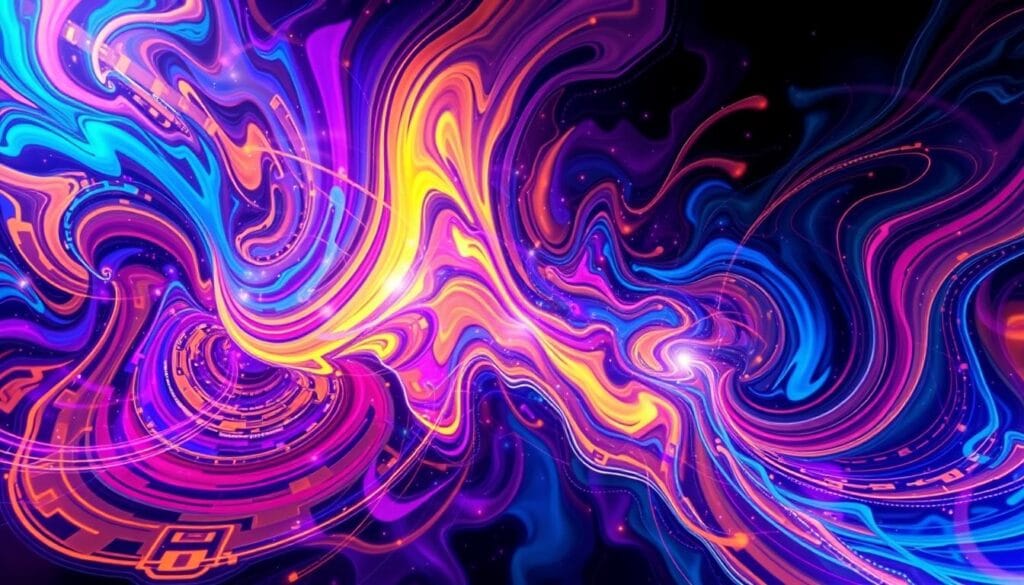
Leonardo AI is a top choice for making visual art with AI. It has many features that help users. The platform has three main AI models for different styles:
- Stable Diffusion: Classic image generation
- Dream Shaper: Artistic and imaginative outputs
- Absolute Reality: Photorealistic rendering
What makes Leonardo AI special is:
- Royalty-free image generation
- Commercial usage rights
- Advanced editing capabilities
“Leonardo AI democratizes digital art creation, making complex visual design accessible to everyone.”
To get the most out of Leonardo AI, try these tips:
- Start with small token investments
- Experiment with diverse prompts
- Utilize premium features strategically
| Feature | Capability |
|---|---|
| AI Image Generation | Create custom visuals instantly |
| AI Canvas | Advanced image editing tools |
| Texture Generation | Design unique background textures |
Whether you’re a pro designer or just starting, Leonardo AI makes it easy. It helps turn your ideas into amazing digital art.
Creating Surreal Photo Manipulations with AI
AI has changed digital art, opening new doors for creativity. Now, artists can turn simple photos into dreamlike scenes. These scenes challenge our views and spark our imagination.
AI has transformed how artists make digital images. You can now create amazing stories that mix reality with fantasy. This is all thanks to advanced AI tools.
Dream-Like Landscape Techniques
To make surreal landscapes, explore AI’s special abilities in art. Here’s how to create step-by-step:
- Choose a landscape image with interesting buildings or nature
- Use AI to change perspective and gravity
- Add unexpected objects or impossible spaces
- Try color changes and texture mixing
Atmospheric Effects and Lighting
To change your images, learn about atmospheric manipulation. AI lets you:
- Make mysterious fog and ethereal light
- Create strange shadows
- Use supernatural colors
- Blend lights smoothly
Human Form Manipulation
AI lets you reimagine human forms in new ways. Generative AI technology lets artists break down and rebuild human figures in amazing ways.
“AI challenges traditional artistic boundaries, transforming how we perceive and create visual art.” – Contemporary Digital Art Collective
With tools like Google’s AI and new photo editing tech, you can mix human forms with nature. This creates surreal scenes that make reality seem fuzzy.
Futuristic Cyberpunk Art Generation
Explore the world of cyberpunk visual art with advanced AI techniques. These methods help create art that goes beyond digital imagination. Start by learning what makes cyberpunk art so unique.
- Neon-drenched urban landscapes
- Augmented reality elements
- Cybernetic character design
- Immersive technological environments
For top-notch cyberpunk art, focus on combining complex visuals. Try experimenting with:
- Digital billboards with glowing text
- Holographic interface overlays
- Atmospheric effects like digital rain and fog
- Architectural designs that blend technology and urban decay
“Cyberpunk art is where technology meets human imagination in its most raw and unfiltered form.” – Digital Art Innovators
Today’s AI tools offer over 20 visual styles. This lets you create stunning cyberpunk scenes. The key is to blend technological elements with dystopian storytelling, making your art haunting and mesmerizing.
Mixed Reality and AI Art Integration
Digital painting and visual content are merging in a new way. Mixed reality (MR) technologies are changing how we see art. Artists are now mixing the physical and digital worlds, making art more immersive.
Blending Digital and Physical Elements
AI is changing graphic design by mixing virtual and real elements. The Apple Vision Pro shows this with its mix of sound and visuals. It’s a new way to experience art.
- Augmented Reality (AR) overlays digital artwork onto physical spaces
- Virtual sculptures interact with real-world environments
- Interactive digital canvases expand artistic boundaries
Interactive Art Experiences
AI is making art more engaging. Meta’s work with Meta Motivo shows how digital avatars can make art more real and interactive.
“Mixed reality transforms art from a static experience to a dynamic, participatory journey.” – AI Art Innovation Research Team
AR Implementation in Visual Art
Artists can now use apps and AR glasses to make their digital art real. The growth of the AI market shows how big of a change this is for art.
- Use AR apps to overlay digital artwork
- Create interactive museum experiences
- Design immersive gallery installations
The future of art lies in the seamless integration of physical and digital realms, where creativity knows no boundaries.
AI-Powered Generative Art Techniques
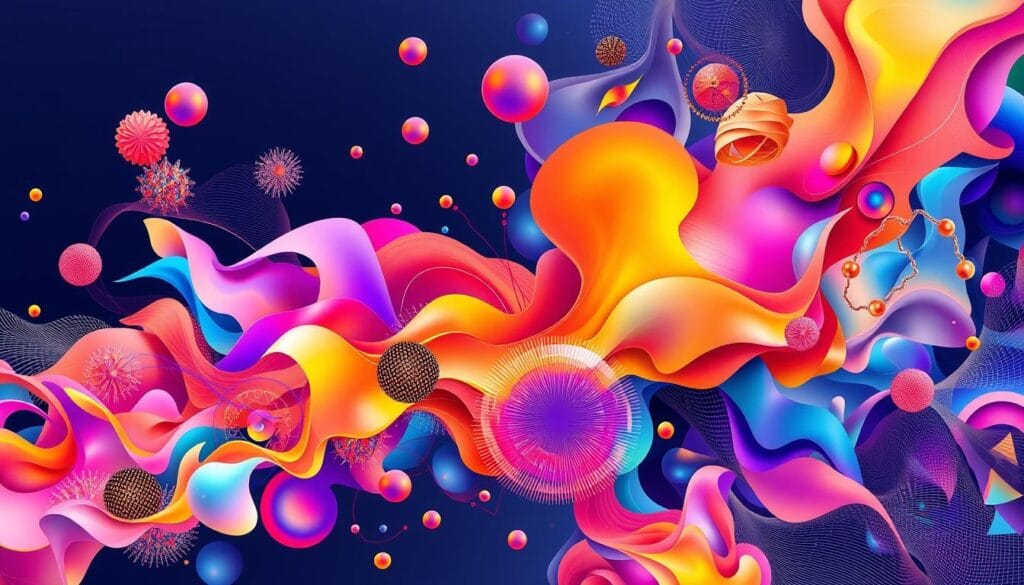
Digital illustration has changed a lot with AI art generation. Now, artists can explore new ways to create, thanks to neural networks. These tools help artists go beyond what was possible before.
AI tools make art more accessible to everyone. Sites like Runway ML and Artbreeder use machine learning to turn images into amazing art. This makes creating unique visuals easier than ever.
“AI is not replacing artists, but providing them with powerful new tools of imagination.” – Creative Technology Experts
- Generative Adversarial Networks (GANs) enable artists to create:
- Abstract visual compositions
- Realistic imagery
- Surreal artistic interpretations
- Style transfer features allow blending:
- Classic painting techniques
- Modern visual elements
- Unique artistic expressions
Tools like RunwayML are changing how we create art. These advanced systems can generate dynamic artworks that respond to user interactions. They show how tech and creativity can meet in exciting ways.
By using AI for art, you can discover new ways to express yourself. It can change how you make digital illustrations for the better.
Optimizing AI Visual Output Quality
To create stunning AI visuals, you need to focus on improving image quality and artistic detail. Your journey to high-resolution ai art involves learning advanced techniques. These methods turn raw AI outputs into beautiful masterpieces.
Working with AI image generation offers many ways to enhance your visuals. The secret is to know how to refine and perfect your digital art.
Resolution Enhancement Methods
To boost ai image quality, use these key techniques:
- Utilize super-resolution algorithms
- Select high-quality base images
- Leverage advanced upscaling tools
- Experiment with machine learning enhancement techniques
Style Consistency Tips
To keep your visuals looking consistent, follow these ai style transfer strategies:
- Create consistent prompt templates
- Fine-tune AI models for specific artistic styles
- Use reference images as style guides
- Implement iterative refinement processes
Error Correction Strategies
To fix common AI art issues, use these proactive approaches:
| Issue | Correction Method |
|---|---|
| Distorted facial features | Manual touch-ups and specialized AI editing tools |
| Unnatural hand representations | Prompt refinement and anatomical guidance |
| Color inconsistencies | Color balance adjustments and style normalization |
“Perfecting AI-generated art is a blend of technical skill and creative intuition.” – AI Art Experts
By using these optimization techniques, you can turn your AI visual outputs into professional-quality artwork.
Best Practices for AI Visual Creation
Exploring AI art needs a smart plan to unlock your creativity. A good ai art workflow starts with knowing how generative AI tools work.
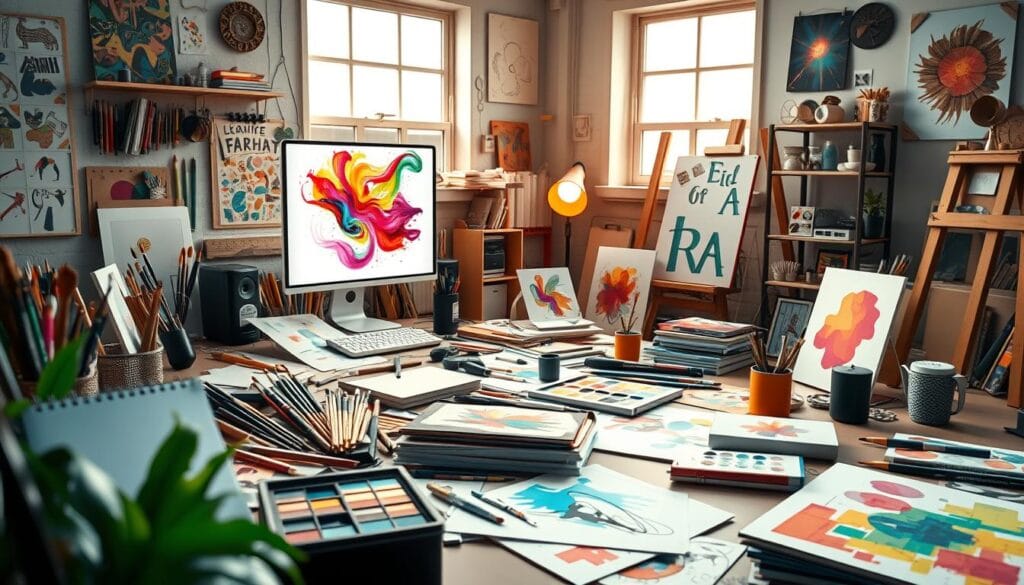
- Learn how to craft great prompts
- Know what AI tools can and can’t do
- Always respect others’ work
- Keep your art true to yourself
“AI art is a collaboration between human creativity and technological innovation”
When working with AI, clear communication and thoughtful design are key. Great artists see AI tools as partners, not replacements for their vision.
For ai art copyright, remember:
| Practice | Recommendation |
|---|---|
| Attribution | Always say you used AI tools |
| Original Content | Make big changes to AI outputs |
| Legal Compliance | Check the rules of each platform |
Keeping up with new AI tech is vital. Learning constantly is essential for using AI art tools well.
Conclusion
The world of AI visual art is changing fast, shaping the creative industry. Your exploration of AI-powered visual creation marks a key moment in artistic innovation. The future of AI art is about more than tech; it’s about pushing human creativity further.
Tools like Canva’s Magic Studio and Adobe Firefly are making design more accessible. They let creators of all levels make amazing visual content.
AI visual art trends are changing how we create. Platforms like Runway’s Gen-3 Alpha and Artlist make work easier and faster. They let artists focus on their ideas, not just the technical stuff.
The growth of the AI art industry shows these tools will keep changing how we create. They’re making high-quality visuals more available than ever.
Remember, AI is a tool to help, not replace, human creativity. The best art comes from combining human ideas with AI’s power. It’s important to think about ethics, make content that’s personal, and keep learning.
Your vision, mixed with AI’s abilities, can lead to new levels of visual expression. The future of visual art is bright and full of possibilities.
Don’t be afraid to try new things with these AI tools. Keep exploring and pushing the limits of what’s possible in visual art. Your unique view, enhanced by AI, can change the art world in exciting ways.
